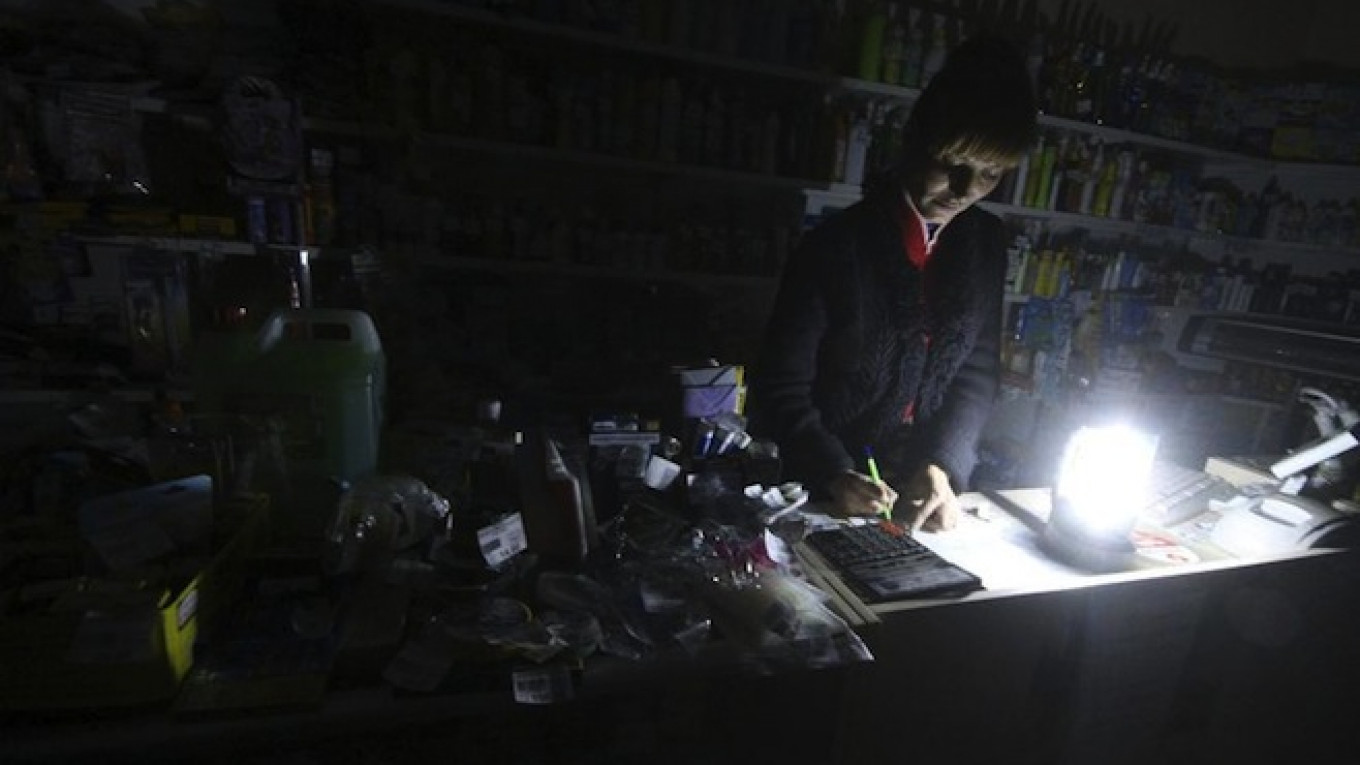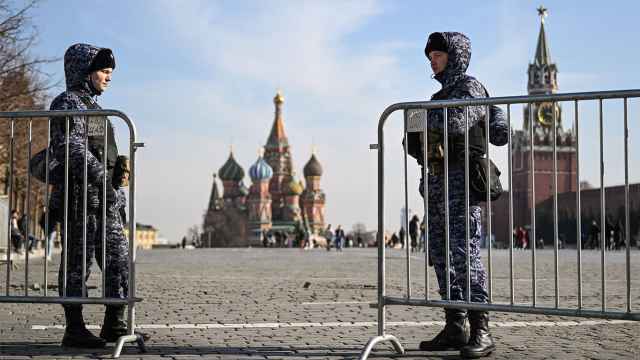Ukraine's state-run energy company Ukrenergo has restored one of the four power lines supplying electricity to Crimea, after an explosion that damaged the supporting pylons led to a power blackout on the Russian-annexed peninsula last weekend, the RIA Novosti news agency reported Thursday.
Ukrenergo personnel working at the site said that although the line had been restored, there had been no instructions to resume power supplies, RIA reported.
The TASS news agency wrote that Crimea might start receiving 220 kilowatts of electricity on Thursday, quoting an unidentified source at the Energy Ministry in Kiev.
In a separate report, TASS wrote that pro-Ukrainian and Crimean Tatar activists had been blocking repair work, with Ukrenergo personnel unsure whether they would be able to finish restoring the Kakhovskaya-Titan line as late as Thursday morning.
Ukraine's Interior Minister Arsen Avakov had earlier called on the country's national security council to annul contracts for power supply to Crimea in response to Russian threats of a ban on Ukrainian food imports from Jan. 1, which has now been signed into law, RIA Novosti wrote Monday.
“This is not about the pylons that were destroyed, it is about our position,” Avakov was quoted as saying.
He also said that it was not possible to begin repairing the remaining three power lines due to the threat of terror attacks, the Ukrainian edition of the newspaper Komsomolskaya Pravda reported Monday.
Russian Energy Minister Alexander Novak accused Ukraine of delaying repair work “for political reasons,” the RT news website reported Monday. Novak added that Moscow would consider halting coal supplies to Ukraine in response, the report went on to say.
Crimean authorities said they weren't relying on the resumption of electricity supplies from Ukraine, and would instead “prepare for the worst,” TASS wrote Thursday.
A Message from The Moscow Times:
Dear readers,
We are facing unprecedented challenges. Russia's Prosecutor General's Office has designated The Moscow Times as an "undesirable" organization, criminalizing our work and putting our staff at risk of prosecution. This follows our earlier unjust labeling as a "foreign agent."
These actions are direct attempts to silence independent journalism in Russia. The authorities claim our work "discredits the decisions of the Russian leadership." We see things differently: we strive to provide accurate, unbiased reporting on Russia.
We, the journalists of The Moscow Times, refuse to be silenced. But to continue our work, we need your help.
Your support, no matter how small, makes a world of difference. If you can, please support us monthly starting from just $2. It's quick to set up, and every contribution makes a significant impact.
By supporting The Moscow Times, you're defending open, independent journalism in the face of repression. Thank you for standing with us.
Remind me later.






